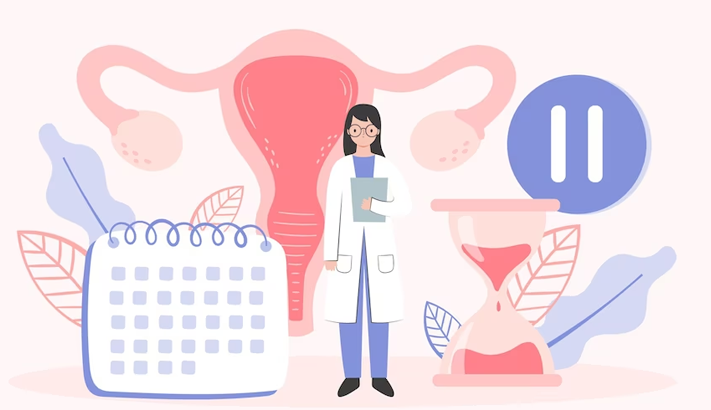PCOS or Polycystic ovary/ovarian syndrome (PCOS) is a set of symptoms related to an imbalance of hormones that can affect women and girls of reproductive age. It is often seen that a high number of teenage girls nowadays are experiencing irregular periods, frequent mood swings, and eating disorders. The main reason for all this is a tremendous change in their lifestyle and diet. PCOS in young women is often undiagnosed and only after the onset of a few symptoms, mothers of teenagers take their daughters to the doctor for consultation.
Symptoms of PCOS
The onset of PCOS symptoms doesn’t typically coincide immediately with the onset of puberty in girls. After a girl experiences her first menstrual period, there’s a period of adjustment before her menstrual cycles become regular. It’s crucial not to confuse this initial phase with PCOS. Diagnosis of PCOS in teenagers can sometimes take time due to the resemblance of many symptoms to normal changes during puberty and adolescence. For instance, irregular periods, acne, and body or facial hair growth are common among many teens, even in the absence of PCOS.
To navigate this, start by monitoring your menstrual cycles. In teenage girls, pay attention to the establishment of regular cycles. If one or more of the following symptoms emerge, consider consulting a physician:
- Irregular periods: Gaps of over 90 days between two cycles, even within the first year after the onset of menstruation
- Menstrual intervals consistently below 21 or exceeding 45 days, persisting for two or more years after menarche
- Absence of menstruation by age 15 or 2–3 years after the appearance of breast development
- Challenges in both losing weight and experiencing gradual weight gain
- Low energy levels
- Sudden and frequent mood swings

Ayurveda Dos and Don’ts for Teenage Girls to Manage PCOS
If you’re diagnosed with PCOS, keep in mind that it’s not a condition that poses an immediate threat. You can effectively manage it and regulate your menstrual cycles with proper nutrition, exercise, and Ayurveda treatments. Here are some Ayurveda do’s and don’t’s for managing PCOS:
Do’s –
- Eat healthy and balanced meals: The diet should not focus only on calories but on being nutrient-dense. Ensure your diet contains all macro and micronutrients
- Exercise regularly: A sport or any outdoor activity that gets your heart rate up is highly recommended to burn fat. Pelvic exercises such as forward-bending Asanas in Yoga also help to improve the functions of your reproductive organs. Ayurveda recommends exercising early morning
- Eat at the right intervals: Ayurveda says to eat your next meal only when the previous is digested well
- Follow an Ayurveda-based seasonal and daily regime
- Maintain proper hygiene during your periods and otherwise
Don’t’s –
- Don’t overindulge in excessive junk and processed food. Avoid eating sweets and candies and packaged, ready-to-eat, or cook food
- Don’t sleep during the day. Ayurveda says sleeping during the day and staying up late at night causes Pitta and Kapha imbalance
- Avoid having constipation and hard stools
- Don’t compromise your mental health or suppress any mood changes. Seek counseling whenever needed






